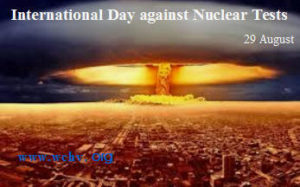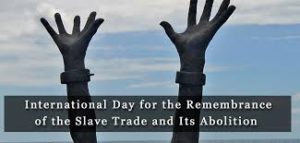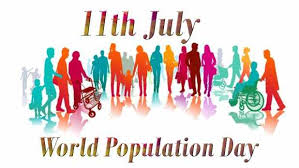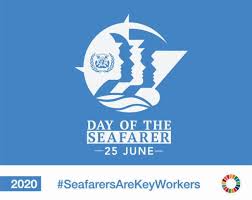 On 2 December 2009, the 64th session of the United Nations General Assembly declared 29 August the International Day against Nuclear Tests through the unanimous adoption of its resolution 64/35 . The Preamble of the resolution emphasizes that “every effort should be made to end nuclear tests in order to avert devastating and harmful effects on the lives and health of people” and that “the end of nuclear tests is one of the key means of achieving the goal of a nuclear-weapon-free world.”
On 2 December 2009, the 64th session of the United Nations General Assembly declared 29 August the International Day against Nuclear Tests through the unanimous adoption of its resolution 64/35 . The Preamble of the resolution emphasizes that “every effort should be made to end nuclear tests in order to avert devastating and harmful effects on the lives and health of people” and that “the end of nuclear tests is one of the key means of achieving the goal of a nuclear-weapon-free world.”
The main mechanism for eradicating nuclear weapons testing is the Comprehensive
Nuclear-Test-Ban Treaty (CTBT) . It was adopted by the United Nations General
Assembly on 10 September 1996. To date, 184 countries have signed the treaty and 168 have ratified it. For the Treaty to enter into Force, it must be ratified by those States with significant nuclear capabilities.
While the general consensus within the international community is that nuclear weapons tests pose life-threatening risks, there still exists to some degree a lingering suspicion of the possibility of clandestine nuclear weapons testing. There is also a concern that if nuclear weapons cannot be tested their reliability may be in jeopardy. However, over the years, advances in science and technology have exponentially boosted the capacity to monitor and verify compliance mechanisms and nuclear weapons proliferation detection. These activities and tracking tools have been initiated and developed by the Provisional Technical Secretariat of the CTBT Organization (CTBTO) Preparatory Commission. Despite the stalled entry-into-force, an increasingly robust public advocacy, including activities and events undertaken on the International Day against Nuclear Tests, is exerting pressure on the powers-that-be to move forward on the ratification of the treaty with a view towards the ultimate eradication of nuclear weapons testing.
The Preparatory Commission of the CTBTO and its 168 ratifying States vigorously
continue to push for the Treaty’s entry into force. The CTBTO’s International Monitoring
System, already encompassing nearly 90 per cent of States, provides confidence that no nuclear explosion will escape detection.
However, nothing can play as crucial a role in avoiding a nuclear war or nuclear terrorist
threat as the total elimination of nuclear weapons. Bringing an irreversible end to nuclear explosions will prevent the further development of nuclear weapons.
International Day for the Remembrance of the Slave Trade and its Abolition
 The night of 22 to 23 August 1791, in Santo Domingo (today Haiti and the Dominican Republic) saw the beginning of the uprising that would play a crucial role in the abolition
The night of 22 to 23 August 1791, in Santo Domingo (today Haiti and the Dominican Republic) saw the beginning of the uprising that would play a crucial role in the abolition
of the transatlantic slave trade.
It is against this background that the International Day for the Remembrance of the Slave Trade and its Abolition is commemorated on 23 August each year.
This International Day is intended to inscribe the tragedy of the slave trade in the
memory of all peoples. In accordance with the goals of the intercultural project “The
Slave Route”, it should offer an opportunity for collective consideration of the historic
causes, the methods and the consequences of this tragedy, and for an analysis of the
interactions to which it has given rise between Africa, Europe, the Americas and the
Caribbean.
The Director-General of UNESCO invites the Ministers of Culture of all Member States
to organize events every year on that date, involving the entire population of their country and in particular young people, educators, artists and intellectuals.
International Day for the Remembrance of the Slave Trade and its Abolition was first
celebrated in a number of countries, in particular in Haiti (23 August 1998) and Goree in
Senegal (23 August 1999). Cultural events and debates too were organized. The year
2001 saw the participation of the Mulhouse Textile Museum in France in the form of a
workshop for fabrics called “Indiennes de Traite” (a type of calico) which served as
currency for the exchange of slaves in the seventeenth and eighteenth centuries.
Circular CL/3494 of 29 July 1998 from the Director-General to Ministers of Culture
invites all the Member States to organize events to mark 23 August each year.
World Humanitarian Day 19 August
 Providing life-saving support during the pandemic.
Providing life-saving support during the pandemic.
On World Humanitarian Day (WHD) August 19, the world commemorates humanitarian workers killed and injured in the course of their work, and we honour all aid and health
workers who continue, despite the odds, to provide life-saving support and protection to people most in need.
This year World Humanitarian Day comes as the world continues to fight the COVID-19 pandemic over recent months. Aid workers are overcoming unprecedented access hurdles to assist people in humanitarian crises in 54 countries, as well as in a further nine countries which have been catapulted into humanitarian need by the COVID-19 pandemic.
This day was designated in memory of the 19 August 2003 bomb attack on the Canal
Hotel in Baghdad, Iraq, killing 22 people, including the chief humanitarian in Iraq, Sergio
Vieira de Mello. In 2009, the United Nations General Assembly formalized the day as
World Humanitarian Day.
World Population Day
 “The 2030 Agenda for Sustainable Development is the world’s blueprint for a better future for all on a healthy planet. On World Population Day, we recognize that this mission is closely interrelated with demographic trends including population growth, ageing, migration and urbanization.”
“The 2030 Agenda for Sustainable Development is the world’s blueprint for a better future for all on a healthy planet. On World Population Day, we recognize that this mission is closely interrelated with demographic trends including population growth, ageing, migration and urbanization.”
UN Secretary-General António Guterres
World Population Day, which seeks to focus attention on the urgency and importance of
population issues, was established by the then-Governing Council of the United Nations
Development Programme in 1989, an outgrowth of the interest generated by the Day of
Five Billion, which was observed on 11 July 1987.
This year’s World Population Day calls for global attention to the unfinished business of
the 1994 International Conference on Population and Development . Twenty-five years
have passed since that landmark conference, where 179 governments recognized that
reproductive health and gender equality are essential for achieving sustainable
development.
In November, UNFPA, together with the governments of Kenya and Denmark, will be
convening a high-level conference in Nairobi to accelerate efforts to achieve these unmet goals. On World Population Day, advocates from around the world are calling on leaders, policymakers, grassroots organizers, institutions and others to help make reproductive health and rights a reality for all.
Why Do We Mark International Days?
International days are occasions to educate the public on issues of concern, to mobilize
political will and resources to address global problems, and to celebrate and reinforce
achievements of humanity. The existence of international days predates the establishment of the United Nations, but the UN has embraced them as a powerful advocacy tool. More information available here .
Day of the Seafarer 2020
 Seafarers are on the frontline of the COVID-19 pandemic, playing an essential role in maintaining the flow of vital goods, such as food, medicines and medical supplies.
Seafarers are on the frontline of the COVID-19 pandemic, playing an essential role in maintaining the flow of vital goods, such as food, medicines and medical supplies.
However, the crisis has led to difficult working conditions for seafarers, including
uncertainties and difficulties about port access, re-supply, crew changeovers and
repatriation.
This year, the Day of the Seafarer campaign calls on Member States to recognize seafarers as key workers – and to provide them with the support, assistance and travel options open to all key workers during the pandemic.
The 2020 Day of the Seafarer campaign pays tribute to seafarers, acknowledging their
sacrifice and the issues they face. Many seafarers have been away from home for months and are unsure when they will be able to return home due to travel restrictions.
The campaign also seeks to raise awareness of the work achieved by seafarers in response to the pandemic and to thank them for their contribution. Everyone is invited to recognize that the ability of seafarers to deliver vital goods is central to responding to, and eventually overcoming, this pandemic.
The campaign encourages everyone to treat seafarers with the respect and dignity they
deserve so that they can continue to provide their vital services to keep world trade
moving.















